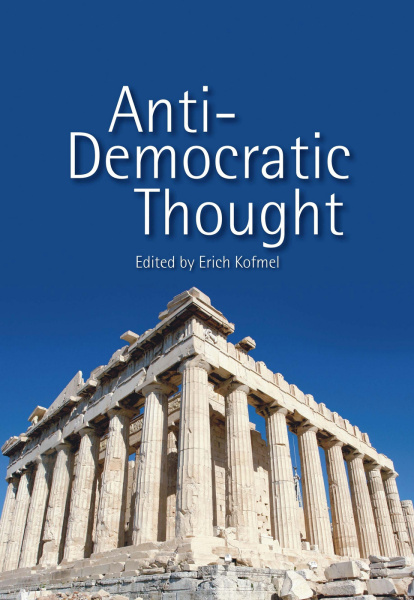From a historical and cross-cultural perspective it cannot be denied that most democracies failed. Only western democracies for a short while -- from the fall of Soviet communism to the rise of radical Islam -- believed themselves to be invincible. It has therefore become necessary to think about political alternatives once more and to study threats to democracy from within and without as well as common modes of failure of democracy across times and cultures. This book marks the start of a daring new debate and re-introduces anti-democratic thought and practice to the academic discourse and into the syllabus. It wishes to offer a serious discussion of anti-democratic thought, rather than an apology of democracy. 'I am the proponent of a new engagement with anti-democratic thought. This book outlines a positive agenda for the future.' -- Erich Kofmel (Editor)
In a comprehensive overview, contributors to this volume discuss theoretical perspectives as well as examples of anti-democratic thought from ancient Greece to modern-day Israel and Bangladesh. A book that grew out of an international workshop on Anti-Democratic Thought organized by the Sussex Centre for the Individual and Society (SCIS) and held at the 2007 annual conference "Workshops in Political Theory" in Manchester, England.
PUBLISHER'S ANNOUNCEMENT Imprint Academic and Erich Kofmel I have been coming under pressure for several months on the matter of Imprint Academic's publication of this book edited by Erich Kofmel. Initially this was from an anonymous group calling themselves "For and On Behalf of the Victims of Erich Kofmel". They wished me to cancel publication of both Imprint Academic’s Kofmel volumes, on the grounds that money obtained by [alleged] fraud has been used in their development. My response was (a) I do not deal with anonymous bodies; (b) Erich Kofmel has not yet been found guilty of fraud; (c) I have a contractual obligation not just to the editor of these volumes but to his contributors. That remains essentially my position, although the problem of anonymity seems now to have gone. I have no wish for the reputation of Imprint Academic to be damaged by its association with Erich Kofmel, but neither do I intend to put myself in the wrong by breaking a legal publishing agreement on the basis of unproved allegations. I should perhaps add that Imprint Academic’s contract with Erich Kofmel has not to date involved any money changing hands in either direction. Anthony Freeman Managing Editor, Imprint Academic 17th April 2009


